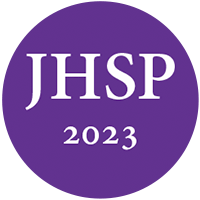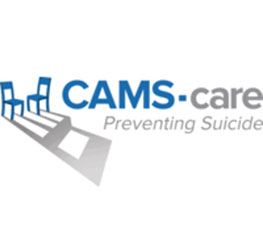The professional home for health service psychologists.
Join a community of 15,000 psychologists and trainees.
Learn it today. Apply it tomorrow.
Connecting you to what you need in your career.
Making a difference.
Mulchan, S. S., Signore, A., Reiss, M., Olezeski, C. L., & Santos, M. (2021). Motivational interviewing to navigate ethical considerations for youth facing stigma in health care settings. Journal of Health Service Psychology. https://doi.org/10.1007/s42843-021-00043-4
Implicit bias and health-related stigma can impact patient-provider communication, particularly related to pediatric chronic conditions that are currently increasing in incidence. This paper highlights the intersection of stigma and bias in health care using a complex clinical vignette to illustrate ethical problem-solving and patient-centered communication through motivational interviewing. Motivational interviewing may improve patient-centered communication and assist in navigating ethical considerations for youth facing stigmatizing conditions such as obesity, chronic pain, and major depression. Clinical considerations for health service psychologists are provided and tailored for gender identity, race/ethnicity, and other relevant sociocultural considerations. Psychologists play an important role in providing education and training to other health professionals on motivational interviewing strategies to facilitate ethical problem-solving and foster more effective patient-provider communication for youth facing stigma in health care settings.
Access continuing education course on CE.NationalRegister.org
American Psychological Association. (2017). Ethical principles of psychologists and code of conduct. https://www.apa.org/ethics/code/
Beauchamp, T. L. (2007). The ‘four principles’ approach to health care ethics. Principles of health care ethics, 29, 3-10.
Burgess, D., Van Ryn, M., Dovidio, J., & Saha, S. (2007). Reducing racial bias among health care providers: lessons from social-cognitive psychology. Journal of General Internal Medicine, 22(6), 882-887.
Engel, G. L. (1960). A unified concept of health and disease. Perspectives in biology and medicine, 3(4), 459-485..
Erickson, S. J., Gerstle, M., & Feldstein, S. W. (2005). Brief interventions and motivational interviewing with children, adolescents, and their parents in pediatric health care settings: A review. Archives of pediatrics & adolescent medicine, 159(12), 1173-1180.
FitzGerald, C., & Hurst, S. (2017). Implicit bias in healthcare professionals: A systematic review. BMC Medical Ethics, 18(1), 19.
Goddu, A. P., O’Conor, K. J., Lanzkron, S., Saheed, M. O., Saha, S., Peek, M. E., … & Beach, M. C. (2018). Do words matter? Stigmatizing language and the transmission of bias in the medical record. Journal of general internal medicine, 33(5), 685-691.
Hagiwara, N., Lafata, J. E., Mezuk, B., Vrana, S. R., & Fetters, M. D. (2019). Detecting implicit racial bias in provider communication behaviors to reduce disparities in healthcare: challenges, solutions, and future directions for provider communication training. Patient education and counseling, 102(9), 1738-1743.
Hall, W. J., Chapman, M. V., Lee, K. M., Merino, Y. M., Thomas, T. W., Payne, B. K., … & Coyne-Beasley, T. (2015). Implicit racial/ethnic bias among health care professionals and
its influence on health care outcomes: A systematic review. American journal of public health, 105(12), e60-e76.
Johns, M. M., Beltran, O., Armstrong, H. L., Jayne, P. E., & Barrios, L. C. (2018). Protective factors among transgender and gender variant youth: A systematic review by socioecological level. The journal of primary prevention, 39(3), 263-301.
Knapp, S., & VandeCreek, L. (2007). Balancing respect for autonomy with competing values with the use of principle-based ethics. Psychotherapy: Theory, Research, Practice, Training, 44(4), 397.
Livingston, J. D., Milne, T., Fang, M. L., & Amari, E. (2012). The effectiveness of interventions for reducing stigma related to substance use disorders: A systematic review. Addiction, 107(1), 39-50.
Lundahl, B., Moleni, T., Burke, B. L., Butters, R., Tollefson, D., Butler, C., & Rollnick, S. (2013). Motivational interviewing in medical care settings: A systematic review and meta-analysis of randomized controlled trials. Patient education and counseling, 93(2), 157–168.
Luty, J., Umoh, O., & Nuamah, F. (2009). Effect of brief motivational interviewing on stigmatised attitudes towards mental illness. Psychiatric Bulletin, 33(6), 212-214.
Malpas, J. (2011). Between pink and blue: A multi‐dimensional family approach to gender nonconforming children and their families. Family process, 50(4), 453-470.
Miller, W.R., & Rollnick, S. (2002). Motivational interviewing: Preparing people for change (2nd ed.). New York: Guilford Press
Nayar, U. S., Stangl, A. L., De Zalduondo, B., & Brady, L. M. (2014). Reducing stigma and discrimination to improve child health and survival in low-and middle-income countries: promising approaches and implications for future research. Journal of health communication, 19(sup1), 142-163.
Pont, S. J., Puhl, R., Cook, S. R., & Slusser, W. (2017). Stigma experienced by children and adolescents with obesity. Pediatrics, 140(6).
Prochaska, J. O., & DiClemente, C. C. (1983). Stages and processes of self-change of smoking: toward an integrative model of change. Journal of consulting and clinical psychology, 51(3), 390.
Puhl, R. M., Peterson, J. L., & Luedicke, J. (2011). Parental perceptions of weight terminology that providers use with youth. Pediatrics, 128(4), e786-e793.
Raphael, J. L., & Oyeku, S. O. (2020). Implicit Bias in Pediatrics: An Emerging Focus in Health Equity Research. Pediatrics, 145(5).
Wakefield, E. O., Pantaleao, A., Popp, J. M., Dale, L. P., Santanelli, J. P., Litt, M. D., & Zempsky, W. T. (2018). Describing perceived racial bias among youth with sickle cell disease. Journal of pediatric psychology, 43(7), 779-788.
Weiss, M. G., Ramakrishna, J., & Somma, D. (2006). Health-related stigma: rethinking concepts and interventions. Psychology, health & medicine, 11(3), 277-287.
Zestcott, C. A., Blair, I. V., & Stone, J. (2016). Examining the presence, consequences, and reduction of implicit bias in health care: A narrative review. Group Processes & Intergroup Relations, 19(4), 528-542.
Copyright © 2025 All rights reserved. National Register of Health Service Psychologists









